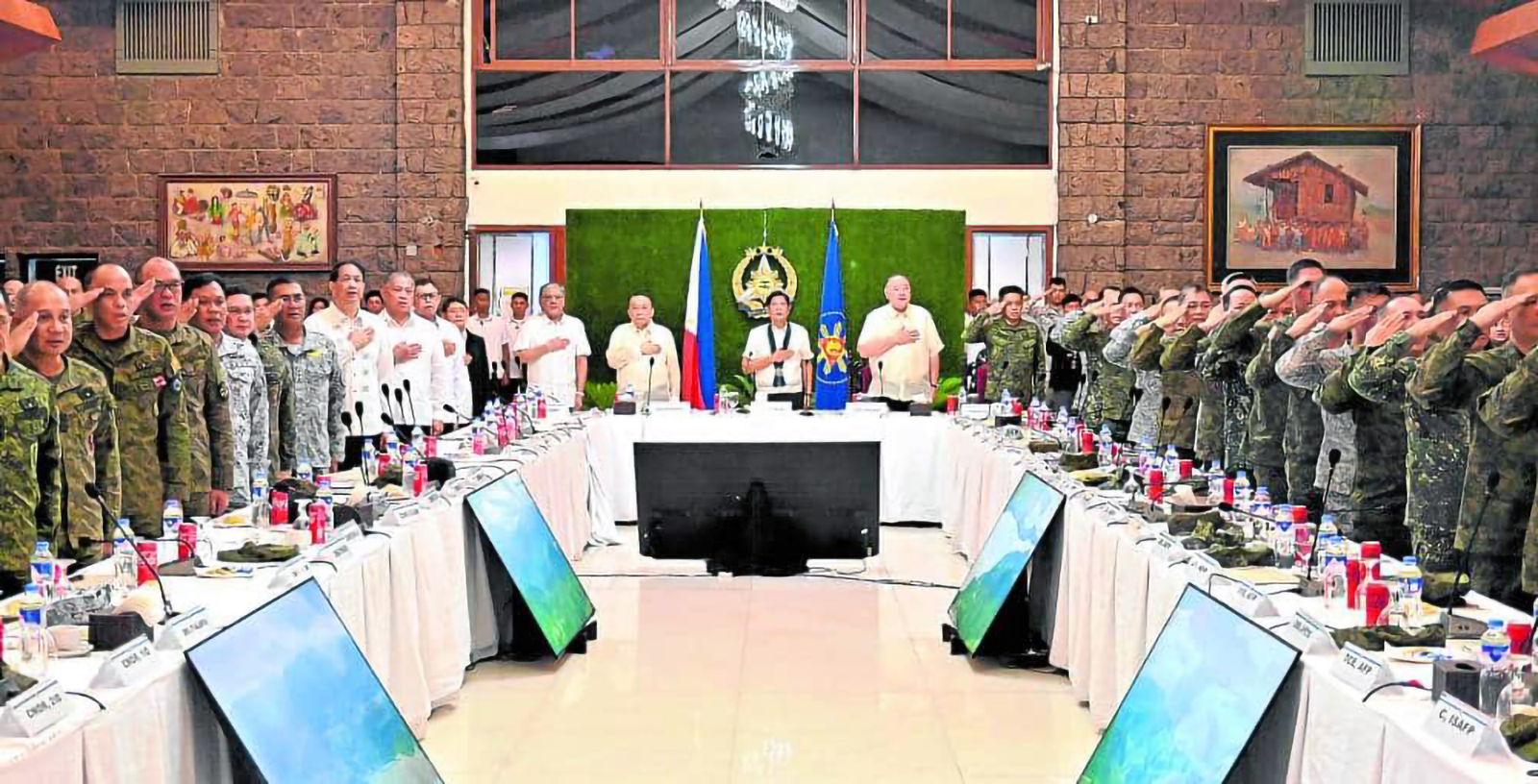PH-Japan troop access pact for signing July 8

CHAIN OF COMMAND The singing of the national anthem opens Thursday’s command conference of the Armed Forces of the Philippines at Camp Aguinaldo, with President Marcos (center) presiding. Standing next to Marcos are (from left) Special Assistant to the President Antonio Lagdameo, Executive Secretary Lucas Bersamin, Defense Secretary Gilberto Teodoro Jr. and AFP chief of staff Gen. Romeo Brawner Jr. —PPA POOL
The Philippines and Japan are expected to sign on Monday, July 8, a historic pact that would allow the two allies and former wartime enemies to deploy troops on each other’s soil.
After seven months of negotiations, top diplomatic and defense officials from the two countries will meet in Manila on July 8 for the 2+2 meeting, a venue to discuss bilateral defense and security issues affecting the region, and the signing of the Reciprocal Access Agreement (RAA).
Foreign Secretary Enrique Manalo and Defense Secretary Gilberto Teodoro Jr. will lead the high-level meeting with their counterparts, Japanese Minister for Foreign Affairs Yoko Kamikawa and Defense Minister Minoru Kihara.
Highest mechanism
“We are hoping that during that meeting, the RAA, or the reciprocal access agreement, will be signed,” Armed Forces of the Philippines chief Gen. Romeo Brawner Jr. said at a press briefing at Camp Aguinaldo on Thursday, following a command conference with President Marcos.
Earlier this week, the Department of Foreign Affairs described the 2+2 meeting as “the highest consultative mechanism between the Philippines and Japan to date.”
The Philippines and Japan began the formal round of negotiations for the RAA after Marcos and Japanese Prime Minister Fumio Kishida agreed to start official talks on a visiting forces deal in the face of Beijing’s growing aggression in the South China Sea.
READ: West Philippine Sea: PH hopes to sign key defense pact with Japan
“RAA is important because it will allow Japanese forces, Japanese troops to come into our country to conduct training with us. It will also allow our troops to go to Japan to train with them,” Brawner said.
The Philippines has existing visiting forces agreements with the United States and Australia, while Japan has a similar deal with the United Kingdom and Australia. Japan formalized an RAA with the United Kingdom after five years of negotiations, while it took seven years of formal talks with Australia to sign the deal.
During his meeting with Kishida in Malacañang in November last year, Marcos said the RAA with Japan would help maintain peace and security in the region.
“We are cognizant of the benefits of having this arrangement both to our defense and military personnel and to maintaining peace and security in our region,” Marcos said.
Broad united front
Rear Adm. Roy Vincent Trinidad, the Philippine Navy spokesperson for the West Philippine Sea, said the RAA would be a landmark deal for Japan and the Philippines.
“This will be a very historic activity considering that the international community now understands a broad united front has to be put in place in order to check any attempts to disrupt the rules-based international order,” he told reporters on Tuesday.
Both Manila and Tokyo have maritime disputes with Beijing in the South China Sea, a strategic waterway where more than $3 trillion of trade passes each year.
READ: Villanueva: Japan-PH RAA to go through ratification process